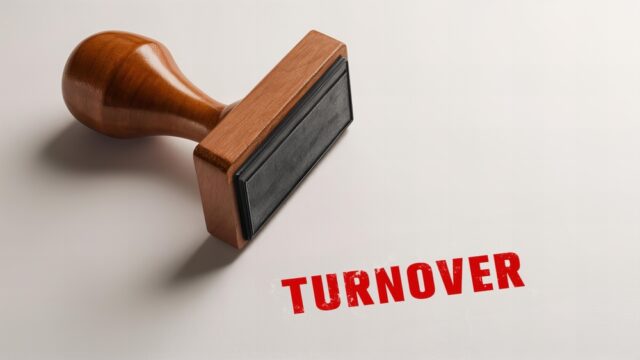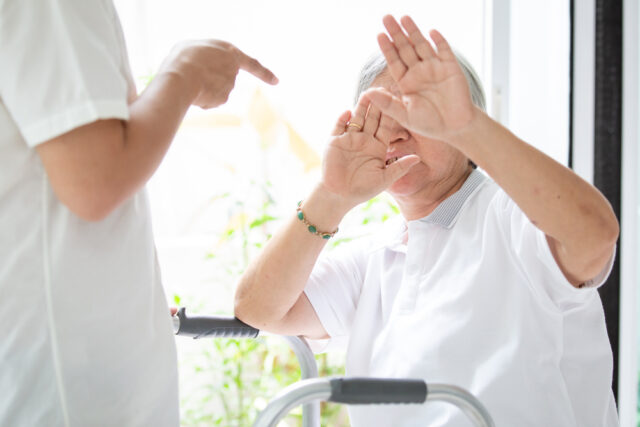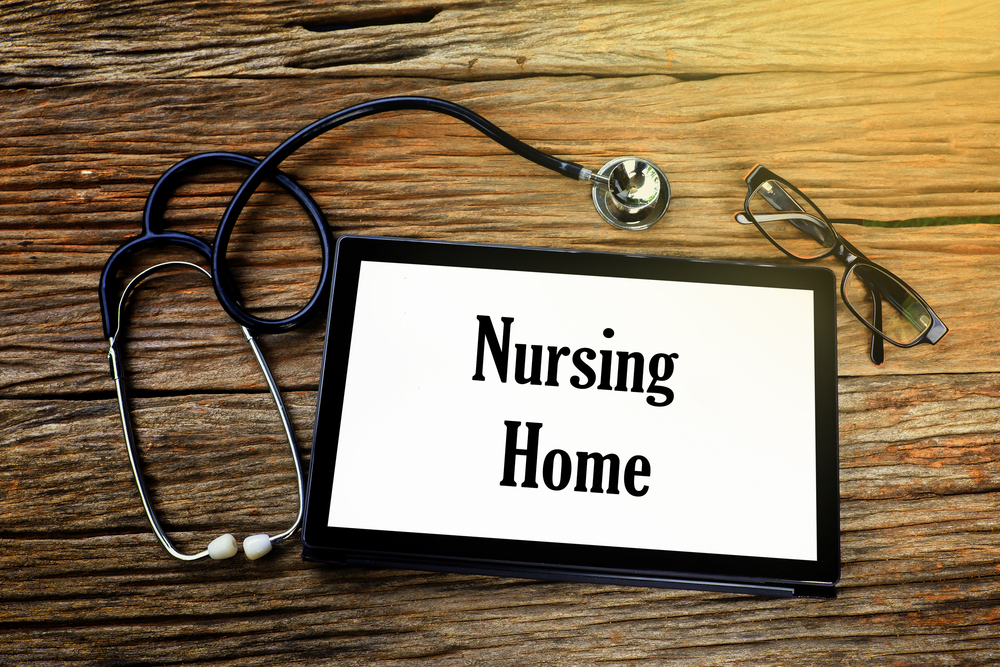Nursing home abuse is a heartbreaking and often preventable issue that affects countless elderly individuals every year. Many families place their loved ones in nursing homes with the hope that they’ll receive the best care possible, but unfortunately, some facilities fail to live up to this responsibility. Nursing home abuse can take many forms, including physical abuse, emotional abuse, financial exploitation, neglect, and even sexual abuse. Understanding the common reasons nursing home abuse occurs can help families recognize the warning signs, advocate for their loved ones, and take appropriate legal action if necessary.
Families should understand the common reasons nursing home abuse occurs, including understaffing, inadequate training, lack of oversight, and more. It also discusses how families can protect their loved ones and the importance of consulting a nursing home abuse lawyer if abuse is suspected. Such legal guidance can be invaluable in holding facilities accountable, ensuring justice for victims, and preventing further abuse.
Table Of Content
- Inadequate Training and Qualifications
- High Employee Turnover
- Lack of Oversight and Accountability
- Resident Vulnerability and Isolation
- Inadequate Reporting Systems
- Profit-Driven Motives
- Burnout and Job-Related Stress Among Staff
- Recognizing the Signs of Nursing Home Abuse
- How a Nursing Home Abuse Lawyer Can Help
- Contact a Nursing Home Abuse Lawyer Today
Understaffing
One of the leading causes of nursing home abuse and neglect is chronic understaffing. Many nursing homes struggle to maintain adequate staffing levels due to budget constraints, high turnover rates, and difficulties recruiting qualified personnel. When facilities operate with insufficient staff, the employees they do have are often overworked and may feel overwhelmed, leading to mistakes, neglect, or even abusive behavior born out of frustration.
Understaffing can also lead to neglect, as there may not be enough caregivers to adequately attend to each resident’s needs. Residents might be left unattended for long periods, resulting in issues like bedsores, malnutrition, dehydration, and other medical problems. In some cases, staff members may even take out their frustrations on residents, leading to physical or emotional abuse.
A nursing home abuse lawyer can help families affected by these issues by holding facilities accountable for failing to provide adequate care due to understaffing. They can also assist in gathering evidence to show how understaffing directly contributed to the abuse or neglect a resident endured.
Inadequate Training and Qualifications
Caring for elderly individuals, especially those with physical or cognitive impairments, requires specialized skills and training. Unfortunately, some nursing homes fail to invest in proper training for their staff. Inadequate training can lead to caregivers making harmful mistakes, from improper patient handling to not knowing how to respond to behavioral changes in residents with dementia or other cognitive impairments.
In some cases, the lack of training also results in caregivers needing to be made aware of best practices for patient interaction, including addressing emotional needs or dealing with aggressive behavior in a non-abusive way. Without these skills, untrained staff members may resort to verbal abuse or physical restraint out of frustration or misunderstanding.
If a loved one has suffered due to improper handling or care from an inadequately trained staff member, a nursing home abuse lawyer can investigate the facility’s training practices and identify areas where they may have fallen short. A lawyer can use this information to strengthen a case and help families seek compensation for the harm their loved ones have endured.
High Employee Turnover
 High turnover rates are common in nursing home environments and contribute significantly to abuse and neglect. When staff members frequently leave, it disrupts the continuity of care and prevents residents from building trusting relationships with their caregivers. High turnover can also lead to increased burnout among the remaining staff, as they are forced to take on additional duties and shifts.
High turnover rates are common in nursing home environments and contribute significantly to abuse and neglect. When staff members frequently leave, it disrupts the continuity of care and prevents residents from building trusting relationships with their caregivers. High turnover can also lead to increased burnout among the remaining staff, as they are forced to take on additional duties and shifts.
This constant flux creates a chaotic environment where important details about each resident’s needs, preferences, and medical conditions may be overlooked. Employees may also feel less connected to residents, viewing their positions as temporary rather than committing to building rapport and understanding with the people they care for. This detachment can sometimes lead to emotional neglect or, in severe cases, abusive behavior.
A nursing home abuse attorney can help uncover patterns of high turnover in a facility and determine whether it contributed to your loved one’s suffering. By holding facilities accountable for failing to maintain a stable staff, attorneys can help ensure that nursing homes are incentivized to improve retention practices.
Lack of Oversight and Accountability
Another major reason for nursing home abuse is a lack of oversight and accountability. In some cases, nursing home staff may feel emboldened to mistreat residents because they believe there will be no consequences for their actions. This lack of accountability is often a result of insufficient management oversight, poor internal reporting systems, or a facility culture that fails to prioritize resident well-being.
When nursing homes lack adequate supervision, it becomes easier for abusive behaviors to go unnoticed or unreported. Supervisors may not be present to monitor staff interactions with residents or fail to follow up on reports of potential abuse. Additionally, some nursing homes lack clear policies on reporting suspected abuse, making it difficult for well-meaning employees to come forward when they witness abusive actions.
A nursing home abuse lawyer can investigate the facility’s management practices and oversight policies. If a lack of accountability contributed to the abuse, an attorney can help expose these issues and work to secure justice for the victim. By pursuing legal action, families can encourage facilities to implement more robust oversight measures to prevent future incidents of abuse.
Resident Vulnerability and Isolation
Elderly residents, particularly those with dementia, Alzheimer’s, or other cognitive impairments, are among the most vulnerable populations in nursing homes. Abusive caregivers may take advantage of these vulnerabilities, knowing that residents with cognitive issues may not remember or be able to communicate the abuse they experience. Isolation can further exacerbate this issue, as some residents have limited contact with the outside world and may not have family members who visit regularly.
Isolation can also contribute to emotional abuse and neglect. If residents feel isolated and disconnected from family or other residents, they may become more vulnerable to mistreatment, as they lack the support network that would enable them to voice their concerns. Some caregivers might even isolate residents intentionally as a form of control or punishment.
A nursing home abuse attorney can advocate for isolated or cognitively impaired residents, ensuring that their voices are heard. By documenting the abuse and gathering evidence, an attorney can work to secure compensation for the harm done and push for improved protections for other vulnerable residents.
Inadequate Reporting Systems
Some nursing homes lack proper procedures for reporting abuse, which allows it to continue unchecked. When staff members do not have clear guidelines for reporting suspected abuse, they may be unsure of how to act or may fear repercussions for coming forward. Similarly, residents may not know whom to speak to if they experience abuse, or they may fear retaliation if they do report it.
An inadequate reporting system can also prevent family members from being informed about issues affecting their loved ones. Nursing homes are responsible for implementing effective reporting procedures to ensure that abuse is promptly addressed and all parties are held accountable.
A nursing home abuse lawyer can help investigate a facility’s reporting policies to determine whether they contributed to the abuse or neglect of a resident. They can also assist in bringing attention to the issue, encouraging nursing homes to improve their policies and ensure that abuse is swiftly reported and addressed in the future.
Profit-Driven Motives
Unfortunately, some nursing homes prioritize profit over patient care. In such cases, facilities may cut costs by reducing staff, hiring underqualified employees, or limiting spending on necessary resources. These cost-cutting measures often compromise the quality of care and can lead to a higher risk of abuse and neglect. When nursing homes operate with a focus on profits rather than providing adequate care, residents may suffer from substandard treatment and even outright abuse.
A nursing home abuse lawyer can investigate whether a facility’s cost-cutting practices contributed to an abusive environment. They can help bring these issues to light, holding nursing homes accountable for prioritizing profit over the well-being of their residents.
Burnout and Job-Related Stress Among Staff
Caring for elderly individuals with complex medical needs can be emotionally and physically taxing, leading to burnout among nursing home staff. High-stress levels and burnout can sometimes cause employees to become short-tempered, impatient, and, in some cases, abusive toward residents. Additionally, overworked employees may not have the time or energy to provide the level of care that residents require, resulting in neglect.
Burnout and job-related stress are often exacerbated by the factors discussed earlier, such as understaffing, high turnover, and lack of support. These conditions create an environment where even well-intentioned staff members struggle to provide compassionate and attentive care.
A nursing home abuse lawyer can help families hold facilities accountable for failing to address issues that contribute to staff burnout. By demonstrating how these systemic problems impact resident care, an attorney can help families seek compensation and advocate for reforms that will improve working conditions for caregivers and protect residents.
Recognizing the Signs of Nursing Home Abuse
 While understanding the causes of nursing home abuse is essential, it’s equally important for families to recognize the signs of nursing home abuse. Some common indicators include:
While understanding the causes of nursing home abuse is essential, it’s equally important for families to recognize the signs of nursing home abuse. Some common indicators include:
- Physical Abuse: Unexplained injuries, bruises, cuts, or broken bones.
- Emotional Abuse: Withdrawal from social activities, anxiety, or depression.
- Neglect: Poor hygiene, bedsores, malnutrition, or dehydration.
- Financial Exploitation: Sudden changes in financial accounts, missing personal belongings.
- Sexual Abuse: Unexplained bruises or injuries, especially around sensitive areas, and changes in behavior.
If you notice any of these signs, it’s essential to take action to protect your loved one. Consider consulting with a nursing home abuse attorney who can help investigate the situation and determine the best course of action.
How a Nursing Home Abuse Lawyer Can Help
Hiring a nursing home abuse lawyer can make a substantial difference in protecting your loved one’s rights and seeking justice for any harm suffered. Here’s how a skilled attorney can help:
Conducting a Thorough Investigation
A nursing home abuse lawyer will conduct a detailed investigation into the facility and the alleged abuse. This investigation may include gathering medical records, interviewing staff and witnesses, reviewing facility policies, and collecting other relevant evidence. A comprehensive investigation is critical for building a strong case.
Identifying Legal Violations
Nursing homes are subject to strict federal and state regulations designed to protect residents. A lawyer can identify any violations of these laws and use them to strengthen your case. For example, if a facility fails to meet staffing requirements or provide adequate training, these failures can be used as evidence of negligence.
Negotiating with Insurance Companies
If the nursing home’s insurance company is involved, a lawyer can negotiate on your behalf to secure a fair settlement. Insurance companies often try to minimize payouts, but an experienced attorney knows how to advocate for full and fair compensation.
Pursuing Legal Action
If a settlement cannot be reached, a nursing home abuse lawyer can take your case to court. They will represent you and your loved one throughout the litigation process, fighting for justice and compensation for the harm suffered.
The good news is that most nursing home abuse lawyers offer free consultations to determine if you have a case. If you decide to work together, they may have contingency fee arrangements. With these financial agreements, you don’t pay until or unless they secure compensation on your behalf. It costs you nothing to find out if you have a valid nursing home abuse claim and to pursue your case.
Contact a Nursing Home Abuse Lawyer Today
If your loved one has been the victim of nursing home abuse or neglect, you don’t have to face this challenging situation alone. A nursing home abuse lawyer can provide the support, guidance, and advocacy you need to protect your loved one’s rights and pursue justice.
By taking legal action, you not only hold the facility accountable for its failures but also help prevent similar incidents from happening to others. Contact a trusted personal injury lawyer today to discuss your case, explore your options, and take the first step toward ensuring a safer and more compassionate environment for all nursing home residents.

